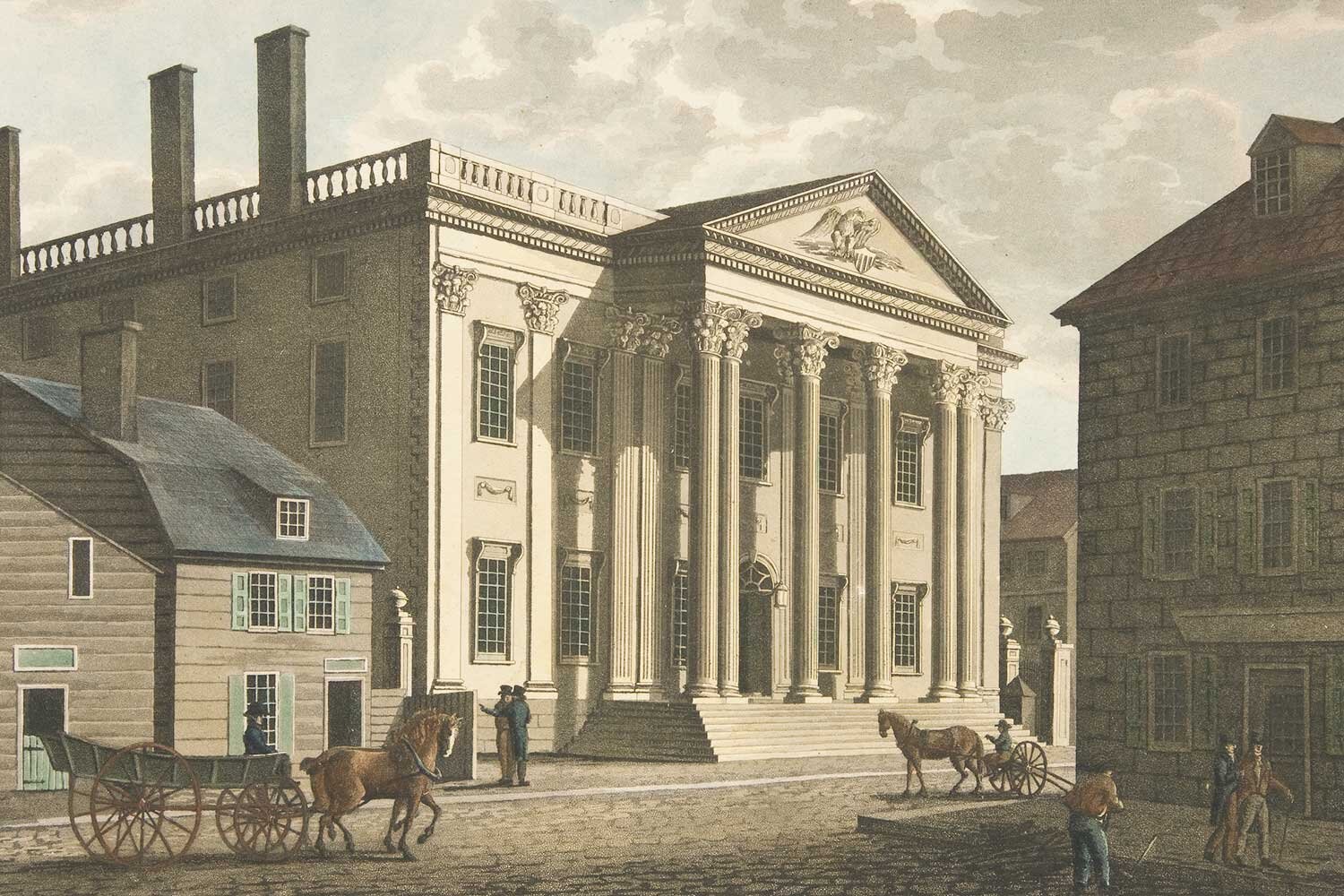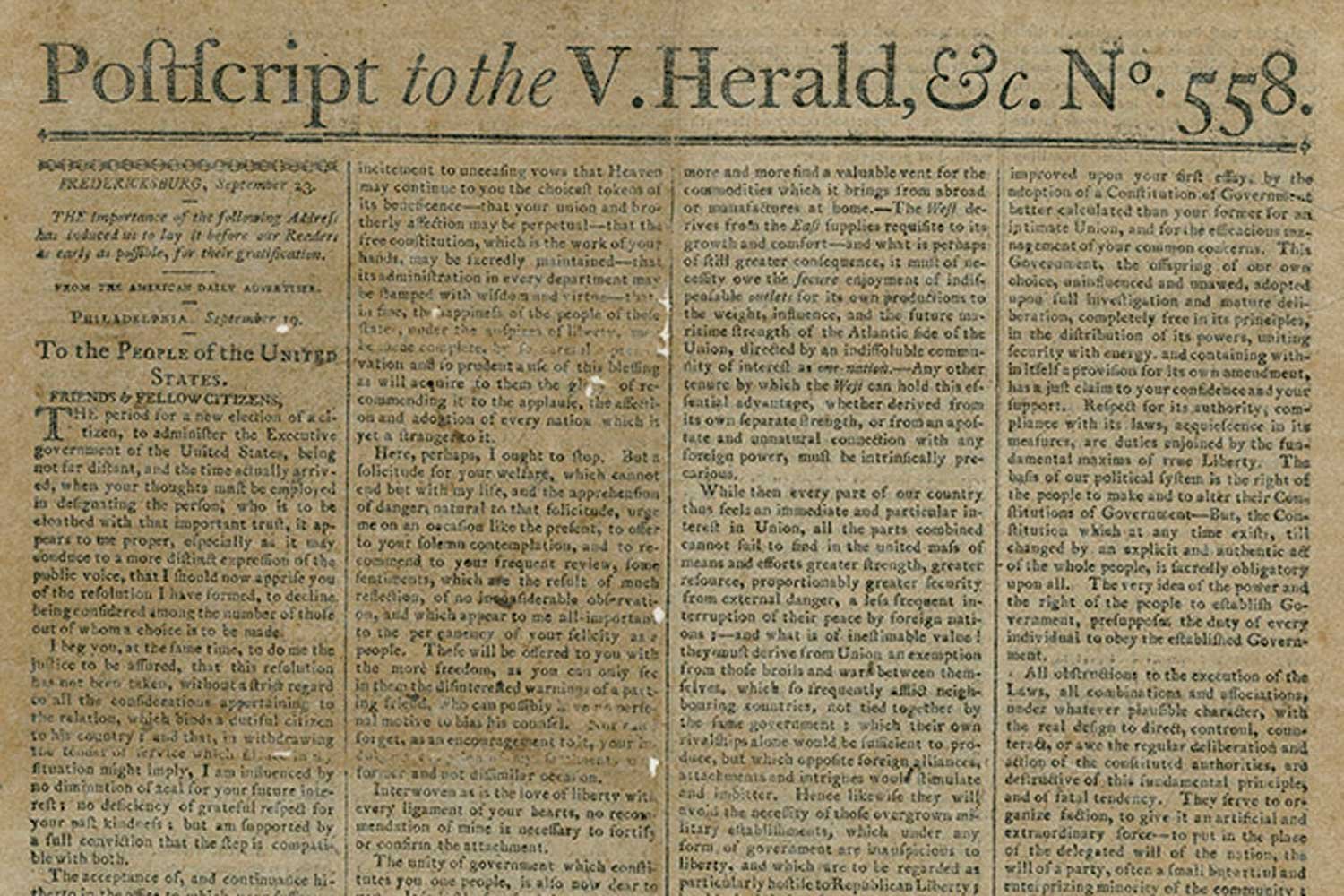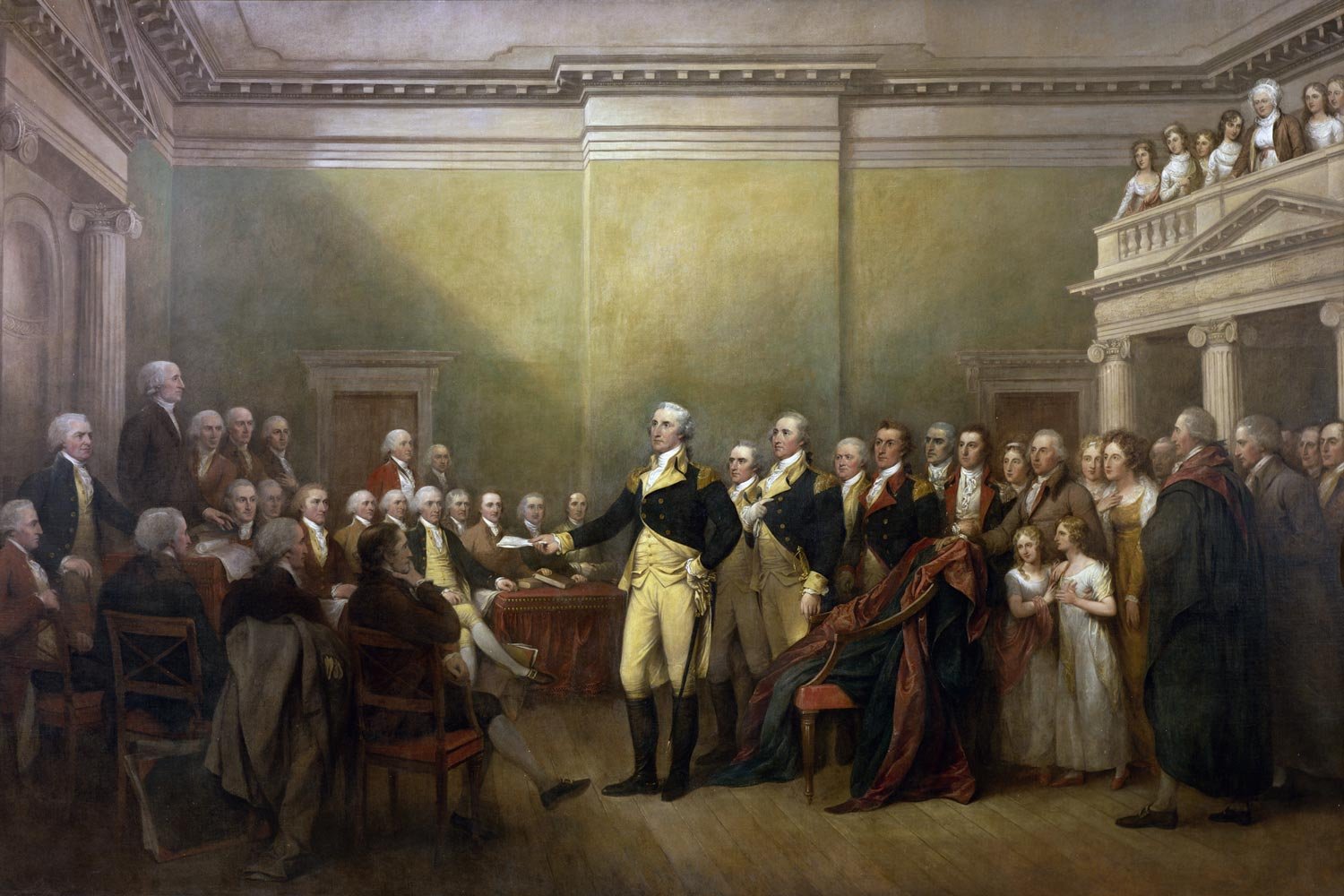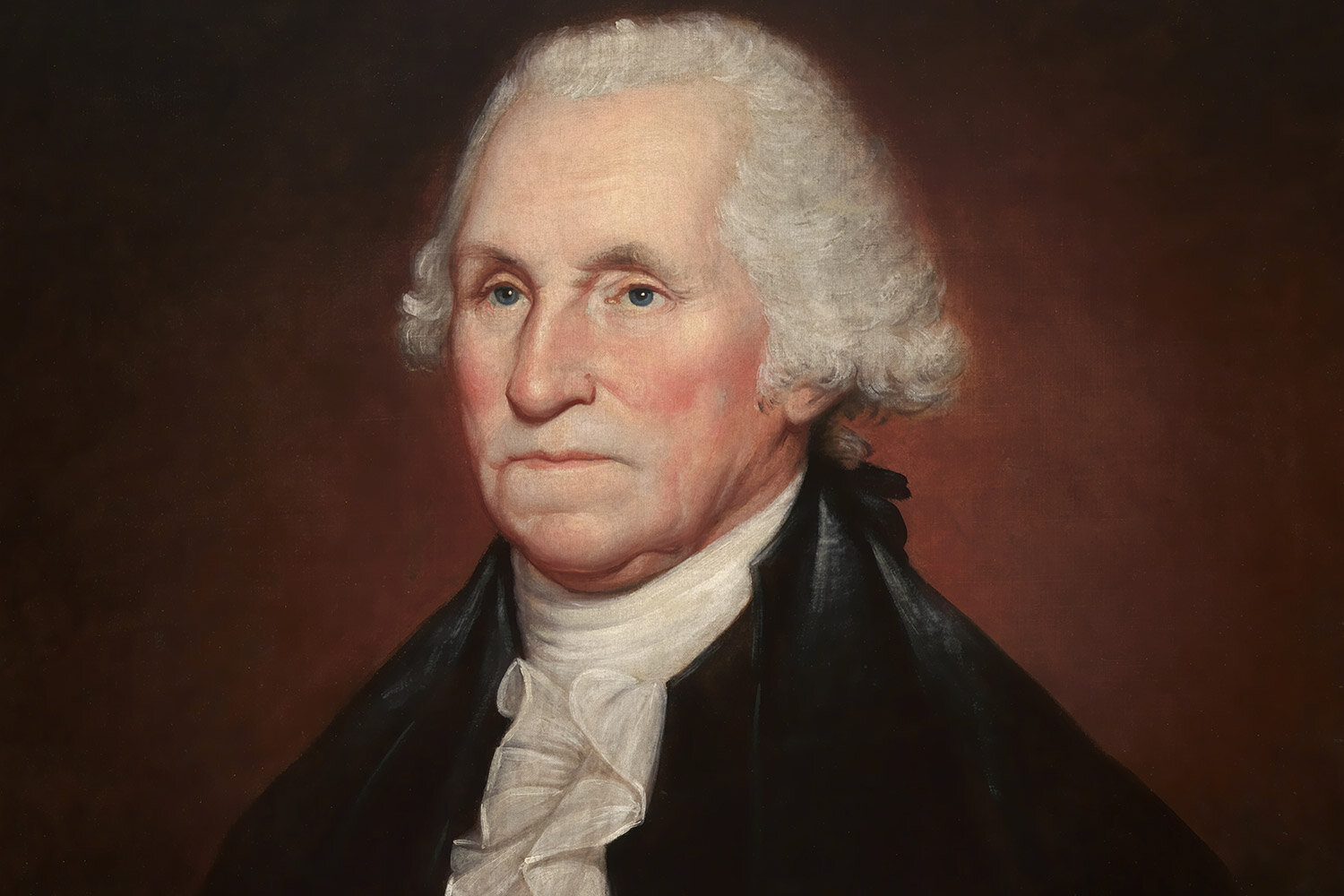George Washington Discourages Debt and Foreign Entanglements
In his Farewell Address, President George Washington shared his thoughts on several topics, including our national debt and the need for our country to remain fiscally prudent. Although Washington understood that in times of war the nation must incur unforeseen expenses, he felt we should avoid “the accumulation of debt, not only by shunning occasions of expense, but by vigorous exertions in time of peace to discharge the debts.”
Additionally, Washington believed it improper to place “upon posterity the burden which ourselves ought to bear.” The incredible increase of our national debt, especially with no plan to retire it, would be troubling to Washington. Being financially prudent and successful in his private business affairs, Washington knew and appreciated the value of a dollar.
Finally, Washington warned his fellow citizens about getting too close to foreign nations and all the adverse consequences that could come from that closeness. He states, “Observe good faith and justice towards all nations; cultivate peace and harmony with all.”
He believed we should set an example to other nations “of a people always guided by an exalted justice and benevolence.” To be this shining example, America must remain free from foreign entanglements.
Today, some consider it America’s duty or role to lead the world, but President Washington understood that our foremost job was to take care of our own needs. He was probably too fiscally practical to think America could afford to run the world and modest enough to recognize that perhaps we had no business doing so.
While some call this position isolationism and disparage it as out-of-date, Washington’s stance is more of a benevolent neutrality; friendly to all and an enemy to none; ready to defend ourselves, but not seeking a fight.
To this point, Washington stated, “that permanent, inveterate antipathies against particular nations and passionate attachments for others should be excluded.” He added “The nation which indulges towards another an habitual hatred or an habitual fondness is in some degree a slave. It is a slave to its animosity or to its affection, either of which is sufficient to lead it astray from its duty and its interest.”
While Washington did not want any permanent political or military ties, he recognized the benefit gained by favorable trade relations. He stated, “The rule of conduct for us, in regard to foreign nations, is in extending our commercial relations,” but it must be conducted with “an equal and impartial hand; neither seeking nor granting exclusive favors or preferences.”
Truly, President Washington was a pragmatist. Like most of the other Founders, he recognized the faults inherent in mankind. He believed it was “folly to look for disinterested favors from another” and “there can be no greater error than to expect or calculate upon real favors from nation to nation.”
President Washington closed his Farewell Address with an explanation of why he took a position of neutrality in the on-going European wars. He tells us he wanted “to gain time to our country to settle and mature its recent institutions, and to progress without interruption to that degree of strength and consistency, which is necessary to give it, humanly speaking, the command of its own fortunes.”
WHY IT MATTERS
So why should George Washington’s advice in his Farewell Address regarding the need to avoid national debt and foreign entanglements matter to us today? George Washington recognized that a nation with poor credit could never survive. He knew from his personal business experience, as well as his experiences with the Article of Confederation government, that America must be able to pay its bills. If not, the country ran the risk of becoming financially reliant on a more prosperous nation and, thereby, losing our hard-earned independence.
Washington also knew from his experience with France and England that all nations did what was in their own best interest. If that meant being our friend, they have good relations with us. If that meant opposing America, they would just as easily take that position.
His advice to be just and equitable to all foreign countries and a permanent enemy to none is sound. Taking a neutral position whenever possible would prevent America getting drawn into wars and agreements which may not be in our best interest. That said, Washington points out while we should remain neutral whenever possible, we should always be prepared to defend America.
As a nation, we largely followed this policy until the twentieth century. One must only consider the seemingly endless wars in which America has engaged since then, and the vast sums of money we have spent, and the countless young men needlessly lost to comprehend the great sense of his words.
SUGGESTED READING
George Washington was written by John Alden and published in 1984. It is a concise telling of the life of the Father of our Country. It is well written and a pleasure to read.
PLACES TO VISIT
Morristown National Historical Park in Morristown, New Jersey was the site of the 1779-1780 winter encampment of the Continental Army. It has numerous historic structures, as well as the impressive Washington Headquarters Museum. This national park evokes the spirit of patriotism and is a wonderful place to visit.
Until next time, may your motto be “Ducit Amor Patriae,” Love of country leads me.






In his Farewell Address, President Washington shared his thoughts on several topics, including the need for America to remain fiscally prudent and to avoid permanent foreign alliances that could pull America into a costly war. With the fighting raging again in Europe, this time thanks to Revolutionary France, and with much sentiment favoring the French, Washington felt it necessary to advise a neutral course for the United States.